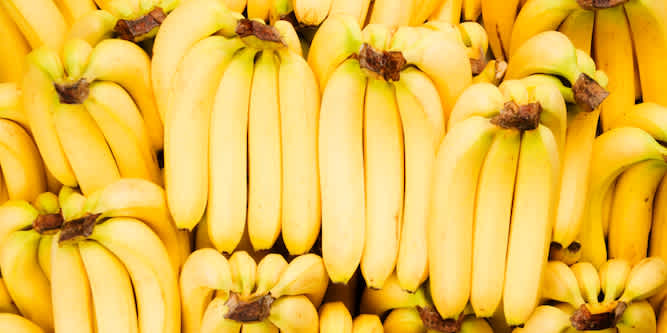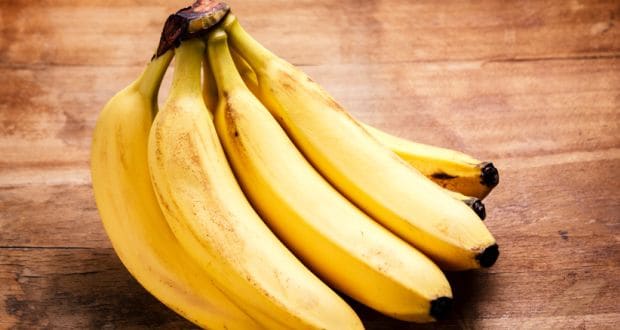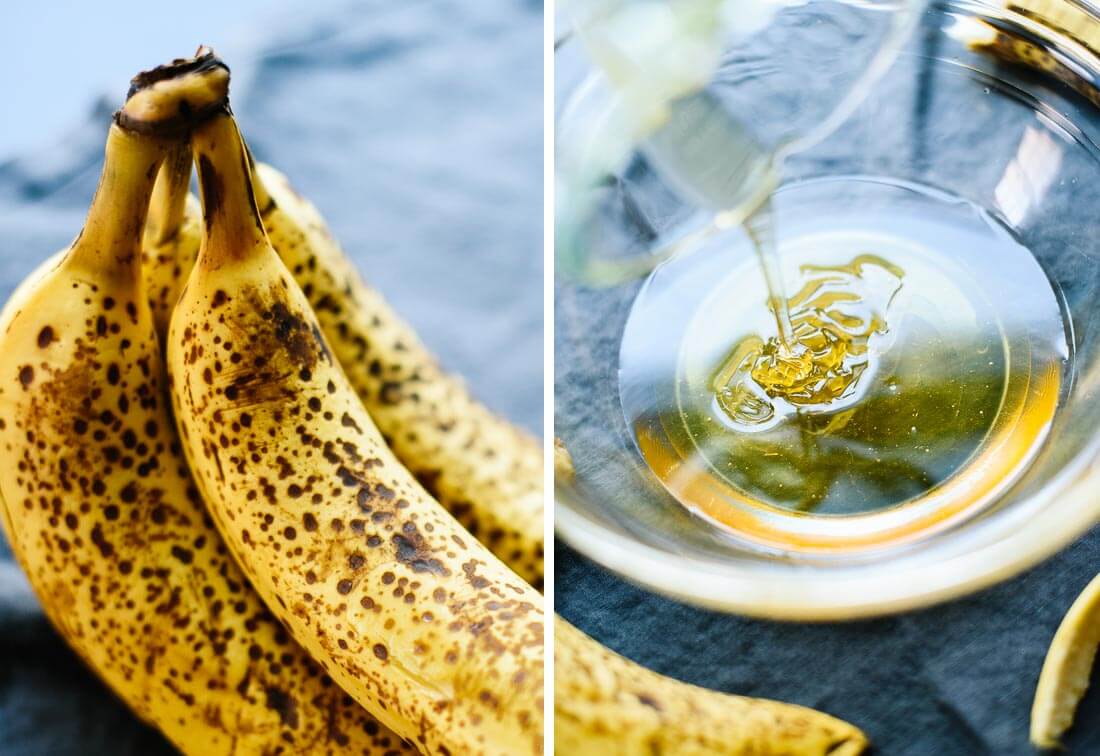Bananas are one of the most popular fruits worldwide. These contain essential nutrients that can have a protective effect on health.

Eating bananas can lower blood pressure and reduce the risk of cancer.
This article will take a look at the potential health benefits of bananas, such as improving heart health and promoting regularity. It also examines the potential health risks that doctors have associated with bananas.
Health facilities
Bananas are high in potassium and have good levels of protein and dietary fiber.
The following sections explain some of the potential health benefits of banana.
Nutritional information comes from the United States Department of Agriculture (USDA) FoodData Central Database.
The daily requirements are from the 2015-2020 Dietary Guidelines for Americans. These are for adults, but they are approximate, as the values vary according to a person's age and gender.
Blood pressure

The American Heart Association (AHA) encourages people to reduce salt, or sodium intake, and to increase their consumption of potassium-rich foods. Potassium can help manage blood pressure and reduce stretchiness on the cardiovascular system.
According to the nutritional information obtained from the above sources, a banana provides about 4% of the daily potassium requirement to a person.
Asthma
A 2007 study suggested that eating bananas may help prevent wheezing in children with asthma. One reason for this may be the antioxidant and potassium content of bananas. However, more research is needed to confirm these findings.

Cancer
Laboratory investigations have suggested that lectin, a protein that occurs in bananas, may help prevent leukemia cells from growing.
Lectin acts as an antioxidant. Antioxidants help the body to remove molecules known as free radicals. If too much free radicals are formed, cell damage can occur, potentially causing cancer.
In 2004, researchers noted that children who consumed bananas, orange juice, or both had a lower risk of developing leukemia.
The study authors suggested that this may be due to vitamin C content, as it also has antioxidant properties.
Heart Brains
Bananas contain fiber, potassium, folate, and antioxidants, such as vitamin C. All of these support heart health.
A 2017 review found that people who follow a high fiber diet have a lower risk of heart disease than those on a low fiber diet. Those consuming more fiber also had lower levels of low-density lipoprotein (LDL), or "bad" cholesterol.

diabetes
The American Diabetes Association recommends eating bananas and other fruits because they contain fiber. They should note that eating fiber can help reduce blood sugar levels.
The author of the 2018 review concluded that eating a high-fiber diet can reduce the risk of type 2 diabetes and lower blood sugar in people who already have the disease.
digestive Health
Bananas contain water and fiber, which both promote regularity and encourage digestive health. A medium banana provides about 10% of a person's fiber needs in a day.
Bananas are also part of an approach known as the BRAT diet, which some doctors recommend for treating diarrhea. BRAT is for bananas, rice, apples, and toast.
Diarrhea can cause a deficiency of water and electrolytes such as potassium. Bananas can replace these nutrients.
According to a 2012 study, high-fiber foods can trigger bloating, gas, and stomach cramps in people with inflammatory bowel disease (IBD). However, bananas can improve symptoms, the author concluded.
The Crohn and Colitis Foundation of America recommends eating bananas as breakfast in their diet plan.
Maintain memory and boost mood
Bananas contain tryptophan, an amino acid that helps maintain memory, enhancing a person's ability to learn and remember things and control mood.

Potassium
Bananas are rich in the mineral potassium. Potassium helps maintain fluid levels in the body and regulates the movement of nutrients and waste products into cells.
Potassium also helps the muscles to contract and respond to nerve cells. It keeps the heartbeat regular and may reduce the effect of sodium on blood pressure.
Potassium can reduce the risk of kidney stones such as the age of people. In turn, healthy kidneys ensure that the correct amount of potassium remains in the body.
A medium-sized banana contains 422 mg (mg) of potassium.
It is best to try to get potassium from dietary sources, such as bananas. Otherwise, potassium supplements are available to buy online.
Get more information about potassium.

Nutrition
The table below shows the amount of each nutrient in a medium-sized banana. It also shows how much adult nutrient requirement each person has as per the 2015-2020 dietary guidelines for Americans. The requirements vary according to the sex and age of the person.
Nutrient intake in a medium banana daily adult requirement
Energy (calories) 105 1,800–3,000
Carbohydrates in grams (g) 27 including 130 grams 14.4 grams
Fiber (G) 3.1 25.233.6
Protein (G) 1.3 46-56
Magnesium (Mg) 31.9 320-420
Phosphorus (mg) 26 700
Potassium (mg) 422 4,700
Selenium in micrograms (MCG) 1.955
Choline (mg) 11.6 425–550
Vitamin C (mg) 10.3 75–90
Folate (MCG DFE) 23.6 400
Beta Carotene (MCG) 30.7 no data
Alpha Carotene (MCG) 29.5 No data
Alpha and beta carotene, selenium, choline, and vitamin C all have antioxidant properties.
Bananas in the diet
Fresh bananas are available throughout the year. Unlike some fruits, bananas continue to ripen even after picking.
Bananas will ripen rapidly at room temperature. To cook faster, people can try placing them in a paper bag.
Refrigerated bananas will ripen more slowly. The outer peel of the banana will turn black in the fridge, but the banana itself will remain intact longer.
Tips for serving and eating
Here are some tips for using bananas:
For a more nutritious breakfast, add a chopped banana to your morning cereal or porridge.
Cook bananas and use them to replace butter or oil in baked goods.
Add mashed bananas to muffins, cookies and cakes for a naturally sweet taste.
Add bananas to a smoothie.
Have a banana for work or school for a healthy, portable snack.
Other Banana Products
Other banana products include banana chips and banana powder. These products are available for online purchase.
People should check the labels of processed products before purchasing them, as they may contain sugar, salt, or fat.
Plantain is a cousin of banana that is popular in Central America. People need to cook the plant before eating it. Plantain chips are also available to purchase.

The risk
Some people should take care not to eat too many bananas.
Beta-blockers: Doctors often prescribe these medicines to reduce the risk of complications that they associate with heart disease. Beta-blockers can increase potassium levels in the blood.
Consuming too much potassium can be harmful for people whose kidneys are not functioning fully. If the kidneys are unable to remove excess potassium from the blood, it can be fatal. Those who use beta-blockers should eat foods with high potassium, such as bananas, in moderation.
What else should you know about beta-blockers? Find out here.
Allergies: Some people may be allergic to bananas. Anyone who experiences itching, hives, swelling, wheezing or difficulty breathing should seek medical help once. An acute reaction can lead to anaphylaxis, which can be life-threatening.
Migraine: Bananas can trigger migraine in some people.

Summary
Banana is a popular fruit that contains essential nutrients that help keep a person healthy.
It is worth noting that while the nutrients in bananas can promote health and prevent diseases, eating bananas may not have the same effect on everyone.
However, a diet that is rich in fresh fruits and vegetables will provide a range of essential nutrients that can help a person keep well.
tags :
benefits of banana sexually
banana health benefits
benefits of banana for men
benefits of eating banana on empty stomach
eat two bananas a day benefits
medicinal uses of banana
banana benefits for women's
benefits of eating banana for skin
कोई टिप्पणी नहीं:
एक टिप्पणी भेजें